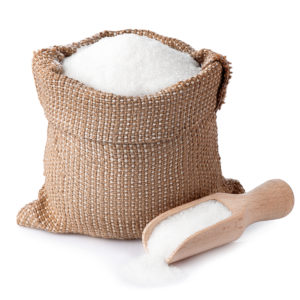As President Trump’s trade talks with our major partners sway back and forth in the news, free-market onlookers remain hopeful the negotiations will usher in a new day of more free and fair trade across the board, with the elimination or serious reduction in the amount of tariffs, quotas and protectionist financial support between the United States and other nations. Trade that is truly fair and free, with nations relying on competitive advantages rather than protectionism, is good for consumers and good for our economy.
Unfortunately, the one commodity that will remain unaffected regardless of Trump’s efforts is sugar, the crucial ingredient in the world’s food supply that has remained intractably mired in a decades-long protectionist quagmire involving every nation that produces it. To untangle this mess would require a scorecard, tracking just how corrupted and distorted this world market has become.
Fortunately, such a scorecard now exists. To help U.S. lawmakers and trade negotiators navigate the tortured landscape of world sugar trade, researchers at Texas Tech University have released a report on global sugar subsidies, including a reference table that lists the market-corrupting activities of the top 21 sugar- producing nations that account for 80 percent of the world’s sugar production. And the picture is as troubling as imagined.
It has long been an irony of the sugar industry that a commodity so prized for its sweetness has been such a continuous source of bitterness on the global trading market. Due to the billions of dollars in subsidies foreign sugar-producing nations pay each year to prop up their own domestic production and export, sugar remains the most distorted and volatile agricultural commodity today.
This hurts both consumers and sugar growers, as subsidies affect supply, and supply affects cost. Instead of a fair and level world market for sugar where price and supply can be based on true costs of production, global consumers will be forever at the mercy of foreign nations and their protectionist whims.
Like an all-night poker game where nobody calls, foreign nations such as Brazil, India, Thailand and many others keep raising the pot for subsidies to their domestic sugar growers, creating a continuing cycle of distorted prices and alternating supply gluts and shortages for consumers, while creating uncertainty for farmers. This has led to a subsidy war where the cost of producing sugar is actually twice that of the average price on the world market, an absolutely unsustainable situation.
The author of the Texas Tech report, Darren Hudson, noted, “There’s one common thread connecting every country. They all subsidize their own country’s sugar production to the detriment of others.”
The report overall focuses on the highly protectionist and predatory tactics of the world’s top sugar exporting nations, including Brazil’s $2.5 billion and India’s $1.7 billion in annual subsidies to their domestic sugar industries to prop up production and undercut competitors. Other nations in the report include Thailand, Mexico, China, Japan, Canada, and the European Union, who also boost their sugar producers through import tariffs on competing nations. This is in addition to other protectionist tactics employed, including loan forgiveness, price controls and direct payments to producers for equipment and supplies.
While the United States does not export sugar or provide subsidies, our national sugar policy is aimed at protecting consumers and farmers from a glut of subsidized sugar from other nations through import quotas and interest-bearing loans to U.S. farmers. But this is a mere bandage on a problem that will only get worse over time as other countries double down on more subsidies and government support for home-grown sugar.
To help end this madness and protect consumers and American farmers, Consumer Action for a Strong Economy has long endorsed the proposal from Rep. Ted Yoho, R-Florida, called the “Zero-for-Zero” policy, which eliminates U.S. sugar quotas in exchange for the end of foreign subsidies across the board.
Zero-for-Zero is a true free-market solution that removes the corruption from the world sugar market and lets price be based on true production costs and a level playing field. U.S. trade negotiators can certainly use Hudson’s reference report to remain mindful of what’s at stake in talks with our trading partners, and — it is hoped — work to eliminate the corruption and distortions of price and supply that have infested this critical agricultural commodity.

